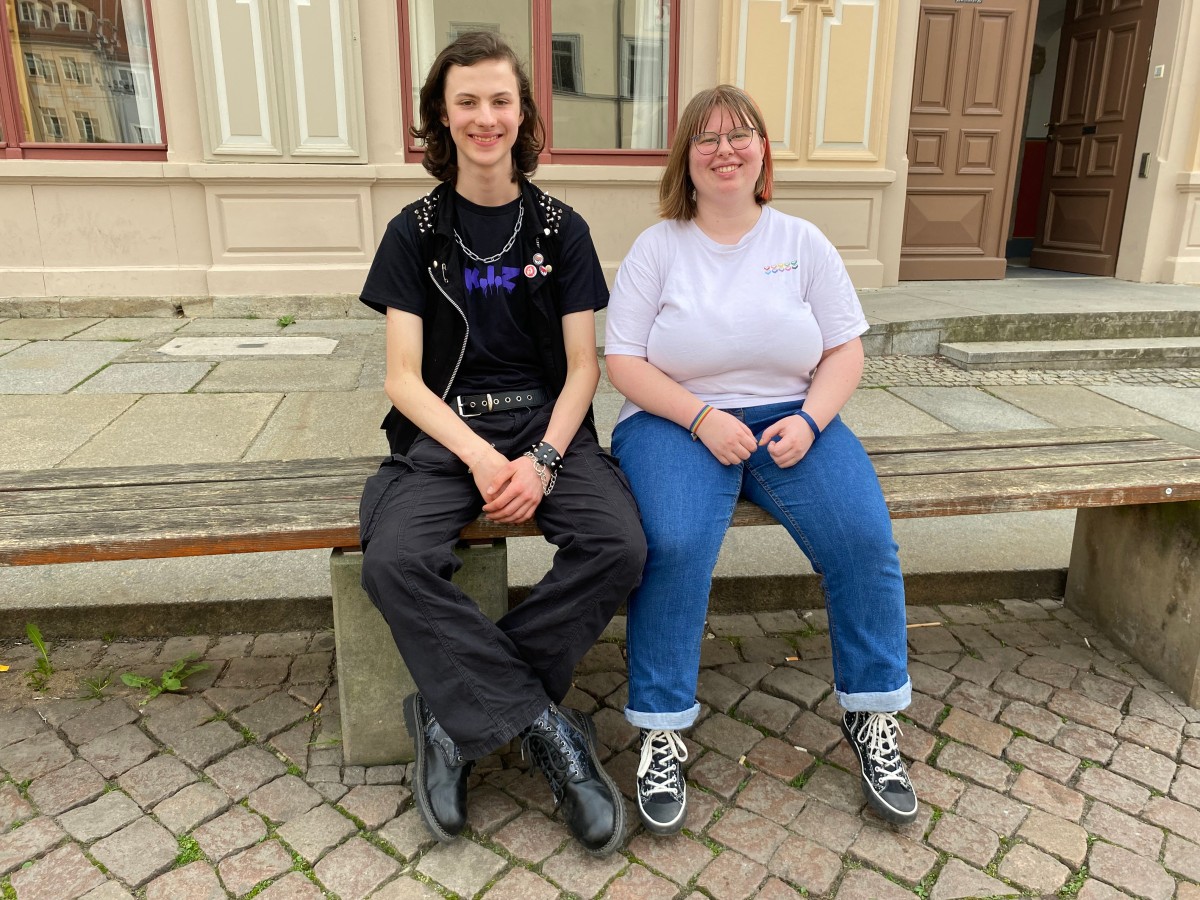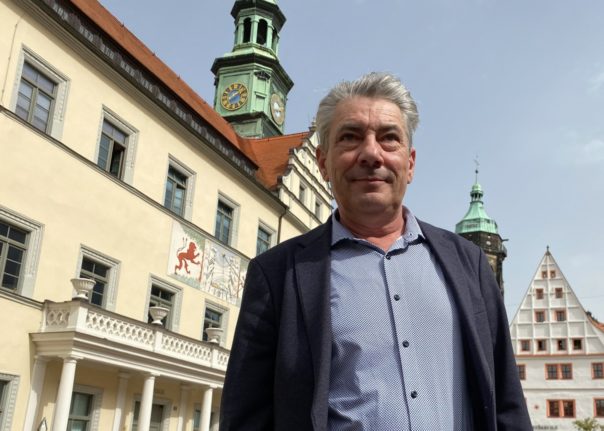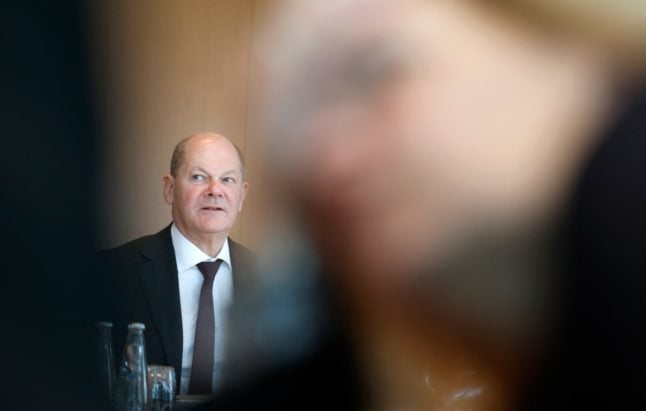“My success proves me right,” Lochner told AFP at the town hall in Pirna, a picturesque mountain town with a population of around 40,000 in the former East German state of Saxony.
Surfing on a surge of support for the AfD across Germany, Lochner scored 38.5 percent of the vote against two other candidates in December, making him the AfD’s first city mayor.
Four months later, support for the anti-euro, anti-immigration party has been slipping as it battles multiple controversies.
But Lochner remains convinced the AfD is on a winning streak ahead of June’s European elections and three key regional polls in Germany in September.
People in Pirna are concerned about “petrol prices, energy prices, food prices”, Lochner said.
“People’s wallets are just as empty as they were the day before yesterday,” he said, arguing that voters will therefore continue to turn to the AfD.
Slipping support
The AfD was polling on around 22 percent at the end of last year, seizing on concerns over rising migration, high inflation and a stumbling economy.
READ ALSO: Germany’s far-right AfD denies plan to expel ‘non-assimilated foreigners’
But a recent opinion poll by the Bild daily had the party on just 18 percent as it contends with several scandals involving its members.
In January, an investigation by media group Correctiv indicated members of the AfD had discussed the idea of mass deportations at a meeting with extremists, leading to a huge wave of protests across the country.
More recently, the AfD has been fighting allegations that senior party members were paid to spread pro-Russian positions on a Moscow-financed news website.
And Bjoern Hoecke, one of the party’s most controversial politicians, went on trial this week for publicly using a banned Nazi slogan.
But in spite of everything, the AfD is still polling in second place after the conservatives and ahead of Chancellor Olaf Scholz’s Social Democratic Party.
It also remains in first place in three former East German states where elections are set to be held in September, including Saxony.
Ruediger Schmitt-Beck, a professor of politics at the University of Mannheim, said the scandals may have swayed some Germans who had seen the party mainly as a protest vote.
“However, the AfD also has a lot of support from people with xenophobic tendencies, right-wing ideological positions and authoritarian attitudes — and they are unlikely to have been affected” by the controversies, he told AFP.
Schmitt-Beck rates the AfD’s chances in the upcoming regional and EU elections as “very good in both cases”.
‘Dissatisfied’
Residents of Pirna are more divided than ever about the party.
READ ALSO: A fight for the youth vote: Are German politicians social media savvy enough?
In the city’s cobbled pedestrian zone, a pensioner who did not want to give her name said she was “glad” to have an AfD mayor “because they address our problems (and) address them honestly”.
Fellow pensioner Brigitte Muenster, 75, said she had not voted for the AfD but she could understand why others had.

“People are dissatisfied. More is being done for others than for the people who live here themselves,” she said.
“I’m not a fan, but let’s wait and see,” added Sven Jacobi, a 49-year-old taxi driver. “Just because he’s from the AfD doesn’t mean it has to go badly.”
But not everyone is so accepting of the new mayor.
On the day Lochner was sworn in, around 800 people joined a protest outside the town hall coordinated by SOE Gegen Rechts, an association of young people against the far right.
“I think that when you look at Germany’s history, it should be clear that you should stand up against that and not let it happen again,” said group member Madeleine Groebe, 17.
Fellow activist Fritz Enge, 15, said that with so many scandals coming to light, the AfD was “making its own enemies”.
“The AfD is inhumane. It agitates against homosexuals and migrants, especially on social media, and I totally disagree with that,” he said.



 Please whitelist us to continue reading.
Please whitelist us to continue reading.
Member comments